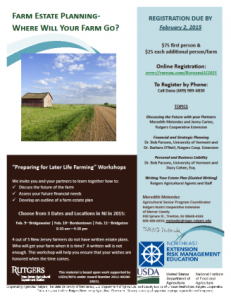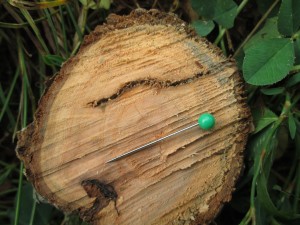The newly revised Produce Rule is drastically different than the original provisional rule. Growers are encouraged to comment on the changes, and respond to several questions that the FDA has about water microbial requirements. Comments are due by December 15th.
The Produce Rule previously required farms to sample surface water used for irrigation (water that would come in contact with the harvestable portion of the plant) every seven days. For example: irrigation pond water that is used for overhead irrigation of blueberries or pond water that is used in pesticide application sprays on tomatoes. This requirement has changed, growers will need to create a baseline survey of the surface water and conduct annual sampling of that water. To create the baseline survey a farm using surface water would need to sample a minimum of 20 times over a two year period. The geometric mean will need to be calculated from these 20 samples to identify the [Read more…]


